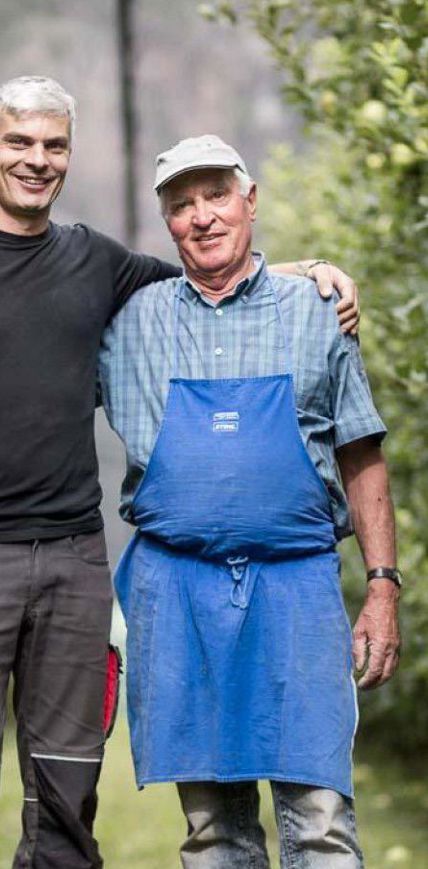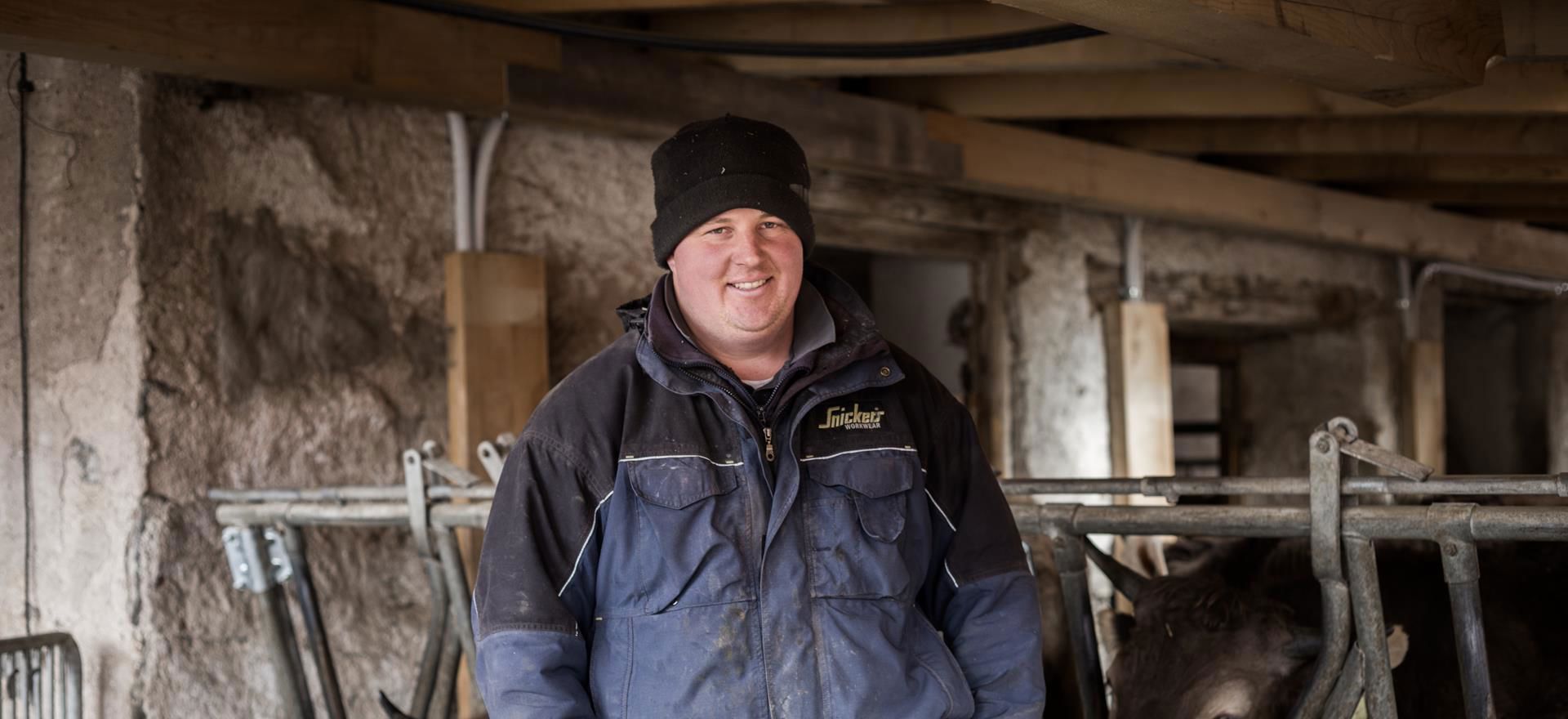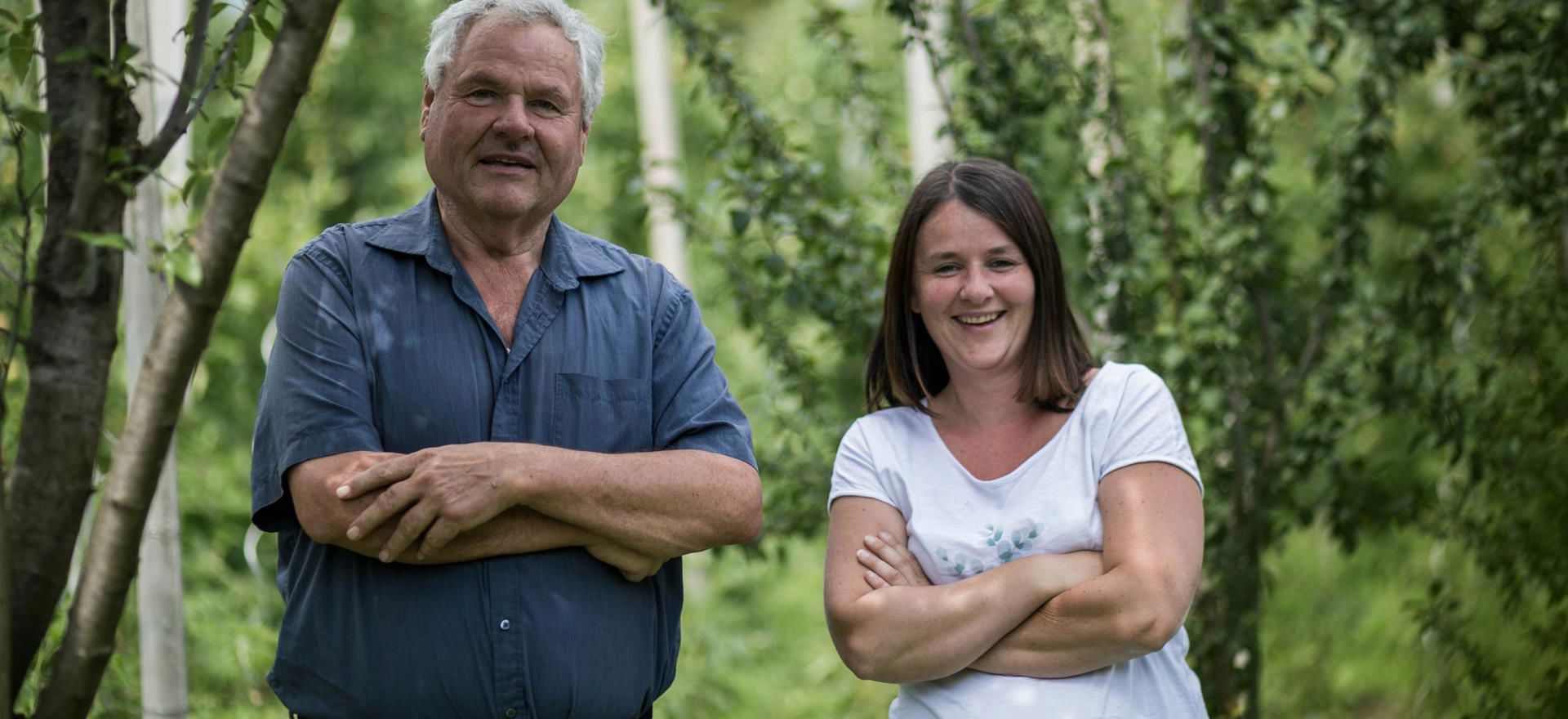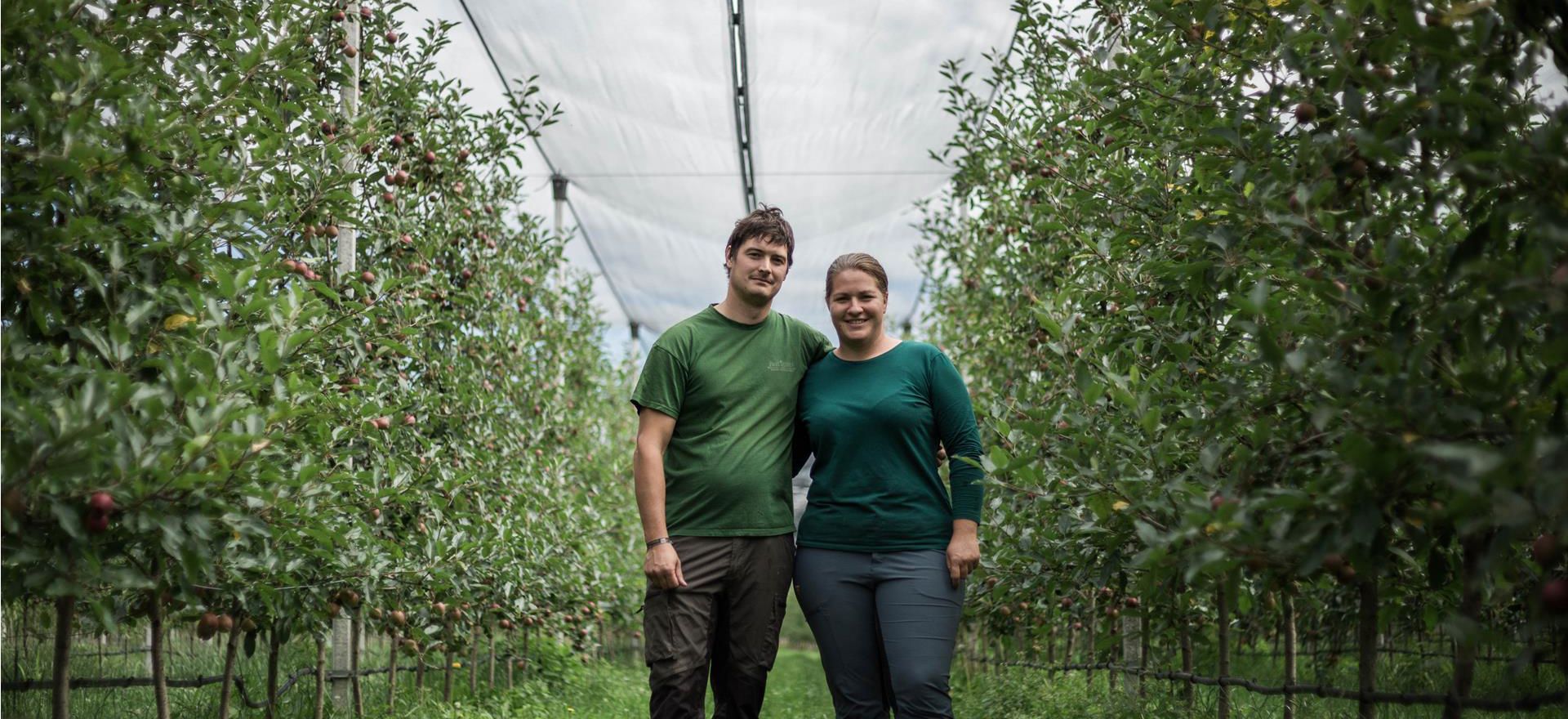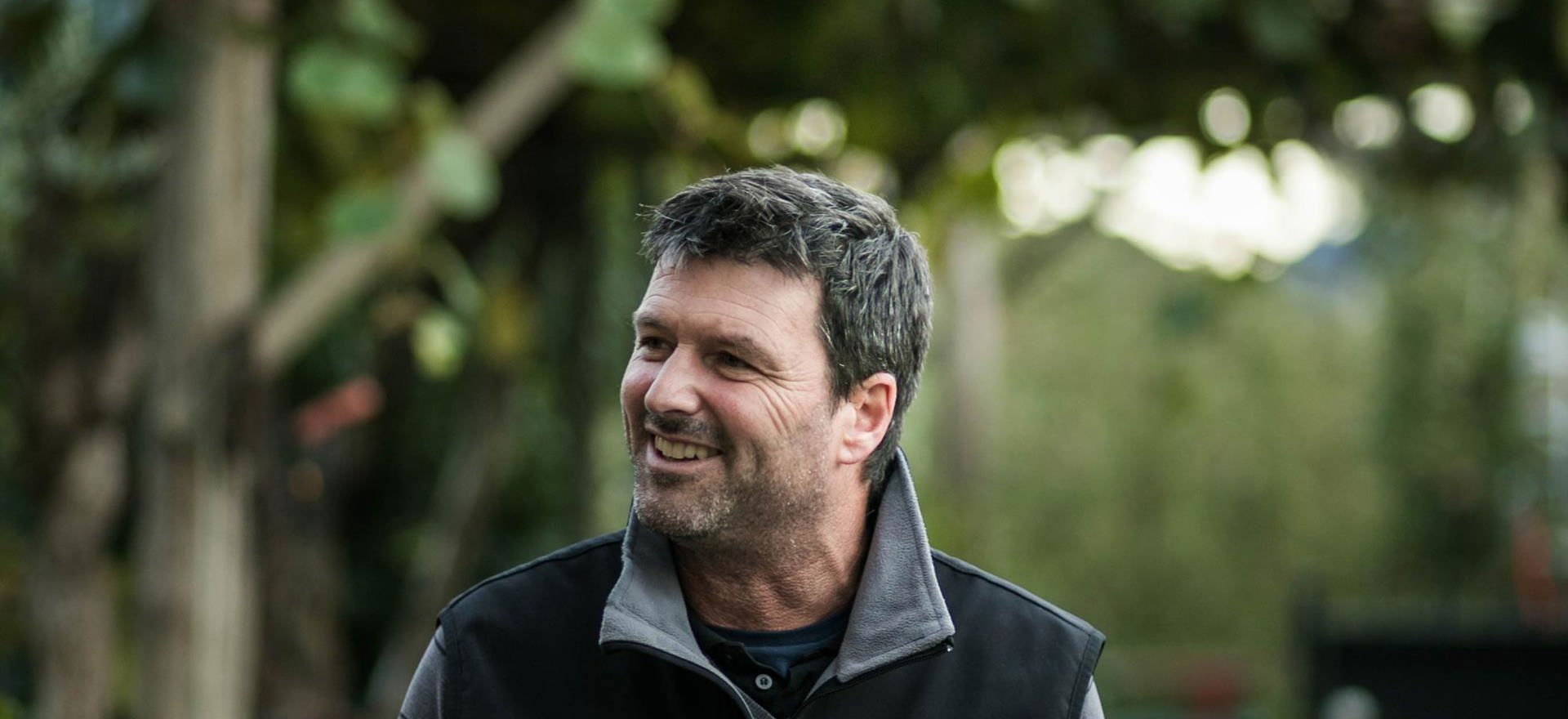After completing agricultural college, Toni was faced with a choice - to go into the lecture hall or into the fruit meadow, university or parental farm.
He let his heart speak and consulted his gut. Toni, the youngest of four siblings, took over his father’s farm and switched to organic farming in 2006. The reason was his desire to do something different, forging a new path: farming without synthetic chemical plant protection. Since then, organic farming has made great strides, and a great deal has changed on Toni’s farm as well.
Toni faces all of the challenges of the meadows together with his father Hansjörg and his two employees Verena and Ali: in his own meadows as well as the apple meadows of organic farming colleagues, who outsource some of the work – from plant protection and tree pruning to mulching. Over the next few years, Toni will continue on the path he has forged where apple varieties are concerned. He recently planted scab-resistant Topaz and Bonita varieties, which require less plant protection. More varieties with these characteristics will be joining them soon.
Composition. That’s what concerns Toni. On the one hand of course for himself and his family, but on the other also for wider society. “For humans and nature, farming and countryside management is the basis for all types of economy. And that’s why we need to manage it together and not as each working for his own.” He’s been living by this conviction for years as a member of the governing board of the Biosüdtirol cooperative and, since 2017, as the chairperson of the association Bioland Südtirol. With clear ideas, a smile on his face and open ears, the young organic farmer enthuses his audience.
Toni faces all of the challenges of the meadows together with his father Hansjörg and his two employees Verena and Ali: in his own meadows as well as the apple meadows of organic farming colleagues, who outsource some of the work – from plant protection and tree pruning to mulching. Over the next few years, Toni will continue on the path he has forged where apple varieties are concerned. He recently planted scab-resistant Topaz and Bonita varieties, which require less plant protection. More varieties with these characteristics will be joining them soon.
Composition. That’s what concerns Toni. On the one hand of course for himself and his family, but on the other also for wider society. “For humans and nature, farming and countryside management is the basis for all types of economy. And that’s why we need to manage it together and not as each working for his own.” He’s been living by this conviction for years as a member of the governing board of the Biosüdtirol cooperative and, since 2017, as the chairperson of the association Bioland Südtirol. With clear ideas, a smile on his face and open ears, the young organic farmer enthuses his audience.


